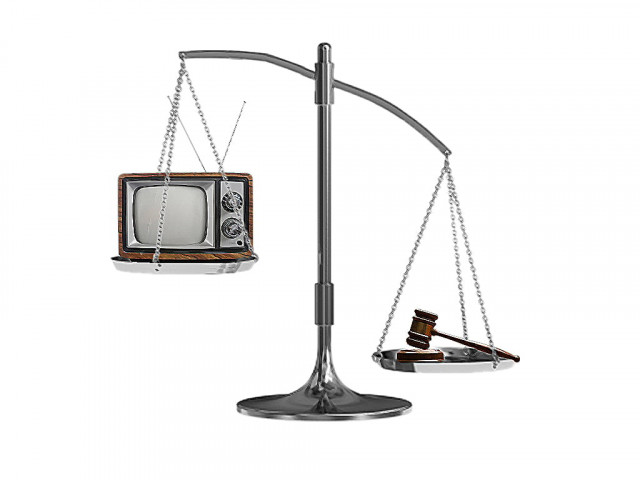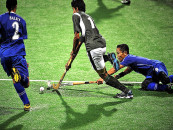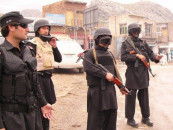Biased reporting: ‘Cover the entire country in the media, not just big cities,’ demand speakers
They also want strict implementation of journalism ethics and code of conduct.

They also want strict implementation of journalism ethics and code of conduct. DESIGN: SUNARA NIZAMI
The panelists and Sindh University students also discussed the lack of ethical reporting and the influence of the government and advertisers on the media. The event was organised at the Sindh University's Media and Communication Studies department on Thursday by the nongovernmental organisation, Rozan, and the secretariat of Pakistan Coalition for Ethical Journalism.
"Television channels and newspapers that we refer to as the national media, are they really national?" asked Prof Amar Sindhu, a human rights activists who also teaches at the Sindh University. "This so called national media is limited to a few big cities only, while important issues in smaller cities and towns are rarely covered."
However, she praised Sindh’s regional media, which she said has learned to strike a balance between both national and local issues in its coverage. Sindhu's concerns were also shared by four of the six panelists, while most of the students present at the event also agreed with her.
"A Sindhi nationalist party organised a huge rally in Karachi's MA Jinnah road on March 23 but no national media channel gave it any coverage," said journalism student Ayesha Keerio, asking the panelists to explain the inequity. “Had it been an event of the Muttahida Qaumi Movement, all channels would have covered it from the beginning to the end.”
The bias shown by the media towards the March 23 rally was also acknowledged by Aaj TV reporter Hameedur Rehman. He said that many political parties manage to gather a large number of people to their public events in Karachi but most of them are overlooked by the media. “Only the political parties that hold some sort of influence in Karachi are covered,” said Rehman. “Another factor is that the subeditors sitting on the desks of TV channels and newspapers lack knowledge and understanding of the issues faced by the rest of Sindh.”
However, this assertion was contested by journalist Sohail Sangi, who also teaches journalism in the Sindh University. This is due to prejudice from people of one community towards members of others, she felt. "There is a dearth of pluralistic values in our society and even our constitution and governments lack them."
Free speech
Responding to the question of a student about freedom of speech, anchorperson Naz Sehto - who works for the KTN Network - compared the restrictions imposed in the 1970s with the current scenario.
He revealed that during Ziaul Haq’s regime, an army major would check all news reported at the Associated Press of Pakistan’s Hyderabad office. "One day, he censored news of a protest against the lack of cleanliness in Jhudo, which is in the Mirpurkhas district,” claimed Sehto. “When I asked him why he did so, he explained that it casts a bad light on the martial law administrator because ultimately he is responsible for the town committee since it works under the district administration, which is appointed by the provincial and federal governments."
The current situation of freedom of expression in the country is far better than what journalists have had to deal with over the last few decades, felt Setho.
Do as you preach
“If you are irked by a lack of ethics in journalism, then implement what you have been taught,” advised Media and Communication Studies department chairperson Prof Rizwana Chang, who also shared the concerns of the students regarding a lack of media ethics. "I hope that with the infusion of fresh blood from academia, ethical journalism will gradually seep into practice."



















COMMENTS
Comments are moderated and generally will be posted if they are on-topic and not abusive.
For more information, please see our Comments FAQ